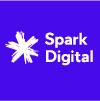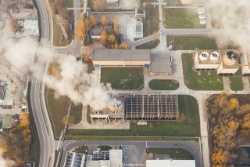1 July 2015
Spark Digital operates to fix the gap between urban and rural surgery
Spark Digital is powering Mobile Health Solutions as a unique paperless mobile surgical centre – the first of its kind in the Southern Hemisphere.
Mobile Health Solutions runs a fully-equipped operating theatre housed in a purpose built 20m bus. It travels the length of New Zealand, from Kaitaia to Gore taking a full range of surgical services to rural areas. The bus journeys on a five week cycle clocking up 50,000km a year and has performed 18,500 operations.
Spark Digital delivers reliable mobile broadband to the unit using a dual option service that can fail over from 4G to 3G and vice versa when required. This provides vital connectivity to central health record systems and to services like Virtual Clinic, a video conferencing product specifically for the health industry. Virtual Clinic allows access from video-enabled devices including smartphones, tablets, desktop and laptops and room-based video conferencing systems to the Connected Health Community. MHS leverage Virtual Clinic to run video conferences for surgical skill training, as well as keeping in touch with the wider health community.
Mark Eager, Mobile Health Solutions general manager, says our business wouldn’t be able to provide its mobile surgical bus without Spark Digital’s rural network coverage.
“MHS’s mobile surgical bus means people can be looked after in their own communities without long journeys to the nearest city hospital. It aims to fill the gap left by rural hospital closures and deliver the kind of service found in large centres.
“Thanks to the bus, surgeons can perform a wide range of procedures including dental, plastic, gynaecological, orthopaedic or general surgery. The only limit is procedures need to be completed in day.”
Eager says the medical technology used in the truck is that same as that found in any hospital operating theatre, although things are different when it comes to handling patient records.
The unit is largely paperless with information sent over the internet using Spark mobile broadband and stored in the cloud. He says: “All patient information is sent over the internet. A fast secure internet, with great rural coverage is essential.
“Spark Digital provides the best coverage in the rural areas we go to. It’s far better than any other network that we’ve come across. We are a demanding customer technology-wise, we require absolute reliability”, he says.
Spark New Zealand invested $158 million to secure more of the 700MHz spectrum, more than any other provider in the Government’s auction of the spectrum last year. Since trials started in April last year, more than 150 rural sites have been enabled with 4G on 700MHz throughout regional New Zealand.
Eager says MHS is always pushing the boundaries, needing the broadest broadband possible for the things we do. “The 4G connectivity in rural areas will make a real difference in what we do and Spark is leading the charge”.
The only paperwork MHS creates is the patient’s own notes. Eager says: “We have the technology that allows us to create an electronic patient record on their time in theatre. Everything is stored on our master server. Patients are given their notes in a printed form in case they do need to see a hospital or doctor afterwards.”
MHS originally planned to ask for an Ethernet connection at each location it stopped at. The assumption was that it would be sharing medical records with local DHBs (District Health Boards). It turns out each region uses a different patient record system. Over the years MHS developed its own cloud-based system that can print reports the various DHBs can import into their systems. Eager says MHS has added extra security measures to keep these records private.
Looking ahead Eager says: “The next few years will see us update the technology further to maintain equilibrium with regular hospitals”. He says telehealth will save huge amounts of money. “The future is video where people won’t have to travel huge distances to be diagnosed or treated – this includes urban customers too”, he says.
-Ends-



 Commerce Commission: ComCom Warns Of Pyramid Schemes After South Auckland Scammers Plead Guilty
Commerce Commission: ComCom Warns Of Pyramid Schemes After South Auckland Scammers Plead Guilty MBIE: MBIE Publish Mid-Point Review Of The Phase-Out Of The Low Fixed Charge (LFC)
MBIE: MBIE Publish Mid-Point Review Of The Phase-Out Of The Low Fixed Charge (LFC) Science Media Centre: Company Claims To Have “De-Extincted” The Dire Wolf – Expert Reaction
Science Media Centre: Company Claims To Have “De-Extincted” The Dire Wolf – Expert Reaction Stats NZ: Greenhouse Gas Emissions Fall 2.0 Percent In The December 2024 Quarter
Stats NZ: Greenhouse Gas Emissions Fall 2.0 Percent In The December 2024 Quarter The Reserve Bank of New Zealand: Christian Hawkesby Appointed As Governor Of The RBNZ
The Reserve Bank of New Zealand: Christian Hawkesby Appointed As Governor Of The RBNZ Kiwi Economics: It’s Mayhem In Markets As Downside Risks Dominate Following Trump’s Tariffs
Kiwi Economics: It’s Mayhem In Markets As Downside Risks Dominate Following Trump’s Tariffs



